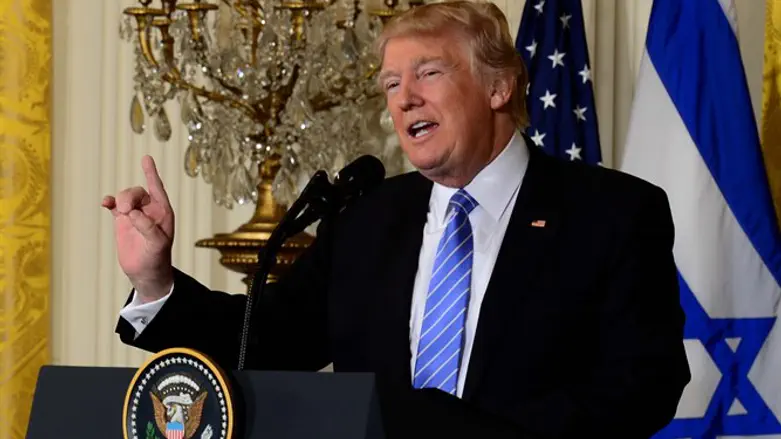
US President Donald Trump's executive order banning travelers from certain countries went into partial effect on Thursday night.
The ban, which temporarily suspends all US refugee admissions, and restricts the entry of travelers from six Muslim-majority countries, went into effect at 8:00p.m. EST on Thursday night.
It affects citizens of Iran, Libya, Somalia, Sudan, Syria, and Yemen, as well as all refugees.
However, it will not include a 90-day freeze on visa applications from Iran, Libya, Somalia, Sudan, Syria, and Yemen, nor will it include a 120-day suspension of the US Refugee Admissions Program.
It will also not include those who already hold valid visas or dual nationals.
Citizens of the affected countries who have "a credible claim of a bona fide relationship" with a US party will be allowed entry to the US despite the ban. This relationship must be formal, true, and documented.
The definition of "bona fide relationship" includes the parent (or parent-in-law), spouse or fiancé, child, adult son or daughter, son-in-law or daughter-in-law, sibling, whether whole or half. It also includes those with business or educational ties to US institutions or companies.
An agreement with a resettlement agency, however, is "not sufficient in and of itself to establish a bona fide relationship."
Attorney General Jeff Sessions said, "The threat to our national security is real and becoming increasingly dangerous," adding that this is "an important step towards restoring the separation of powers between the branches of the federal government."
In January, Trump signed an executive order banning the entry of citizens of seven Muslim-majority countries from entering the US. This order was quickly blocked by a federal judge, and a lengthy legal battle began.
On Monday, the US Supreme Court ruled in favor of Trump's executive order banning for 90 days the entry of citizens of six Middle Eastern countries.
On Thursday, the State of Hawaii filed a court challenge, aiming to expand the definition of "close family" to include extended family as well.
